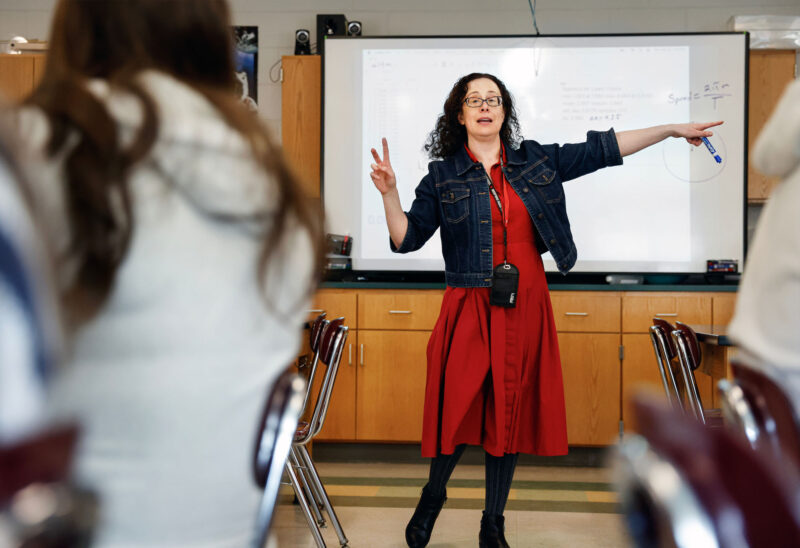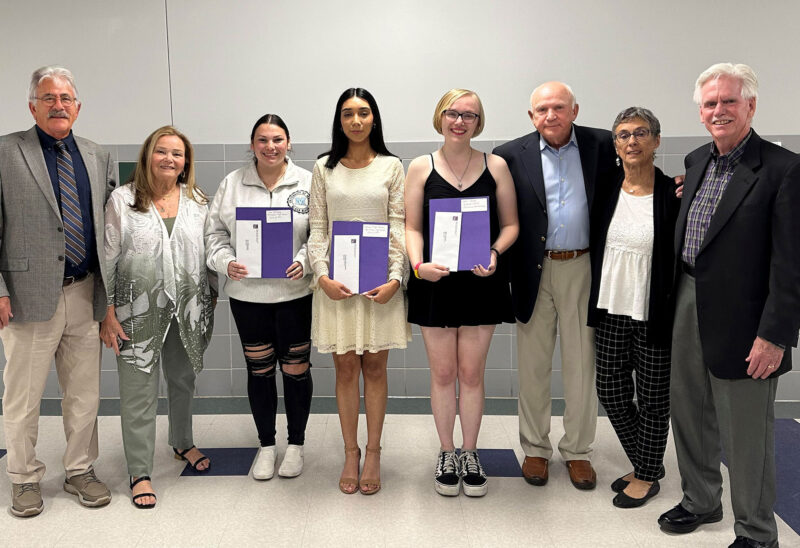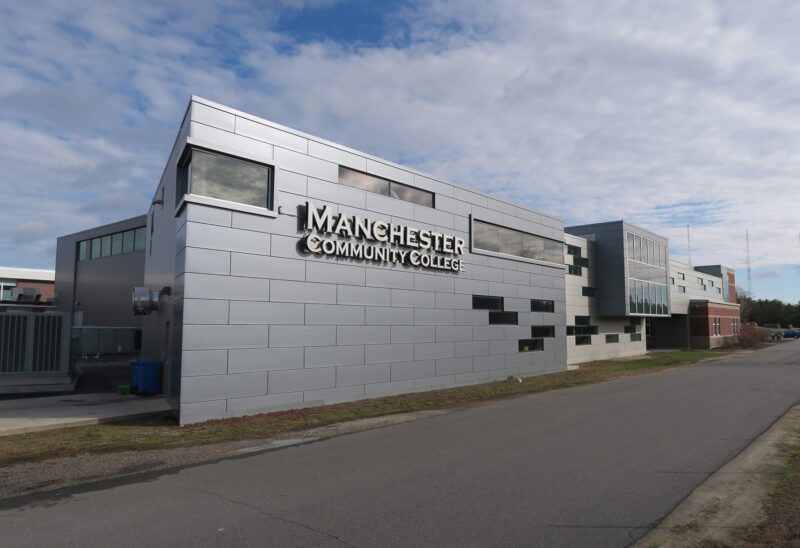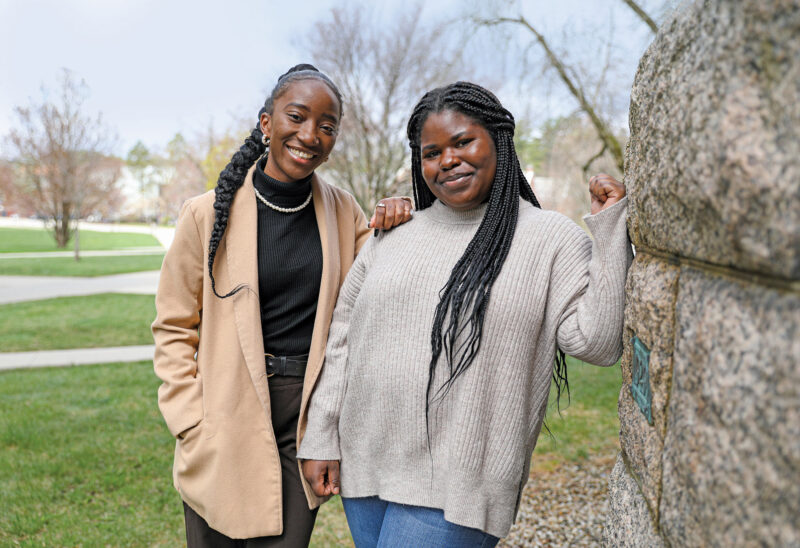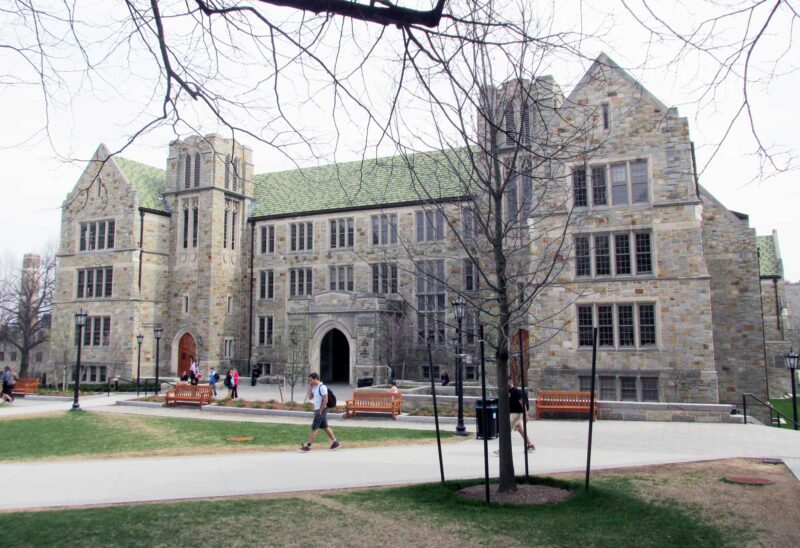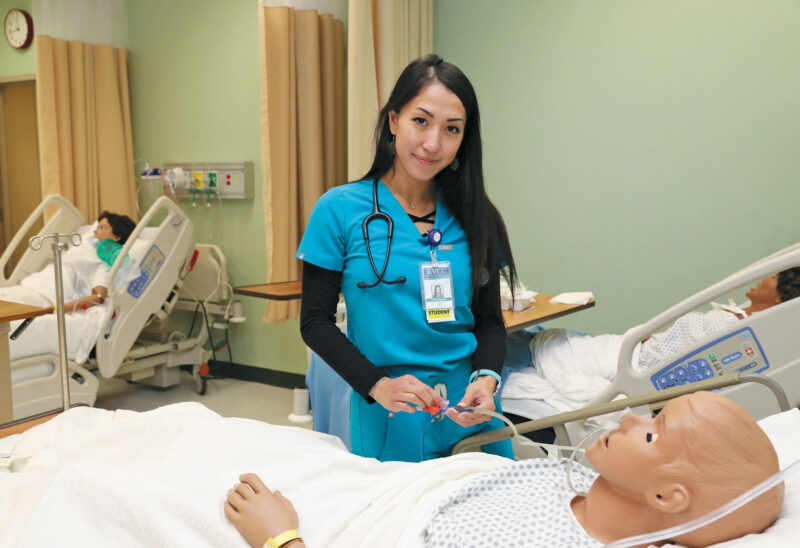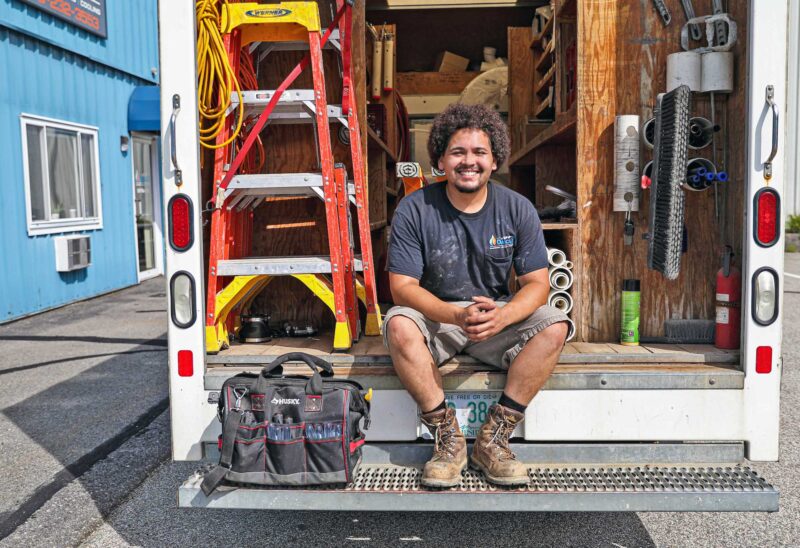Stephanie Ferland had been waitressing at the diner in the town where she grew up. It was the work her mother and her aunts did, and seemed like the work she would always do.
And then her grandmother Marjorie got sick. As Stephanie watched the nurses who took care of her, she realized she had found her calling. Her grandmother realized it, too. “You,” Marjorie said to her granddaughter, “are destined for greater things.”
Stephanie became a licensed nursing assistant and then a medical assistant, jobs she has been doing for a combined 14 years.
When Stephanie’s daughter graduated from high school and became a licensed nursing assistant herself, Stephanie took her own next big step. With help from Charitable Foundation scholarships, this 42-year old single mom is now studying to become a registered nurse. She still works full time and goes to school at nights and on weekends. Her daughter takes care of Stephanie’s 10-year-old son while Stephanie goes to school. Stephanie will graduate in May with her bachelor’s degree from Rivier University.
“I can’t wait to be a nurse,” she said. “Without that scholarship, it wouldn’t have been attainable.”
Increasing opportunities for New Hampshire students
The New Hampshire Charitable Foundation’s Student Aid program has, since 1972, awarded more than $100 million in scholarships to nearly 30,000 students. It is the largest source of publicly available student aid in New Hampshire, and awards more than $6 million each year to students of all ages attending two- and four-year colleges, and to people studying to attain professional licenses and credentials.
All of the more than 400 separate scholarship funds that the Foundation administers were created by generous individuals, families or businesses to help New Hampshire students get the education they need to succeed.
“Scholarships are a critical part of the Foundation’s mission to make New Hampshire communities stronger,” said Foundation Director of Education and Career Initiatives Michael Turmelle. “For students who face barriers to opportunity — like those who are the first in their families to go to college — a scholarship can provide a rung up on the economic ladder that represents a huge advance in economic and social mobility. And not just for them, but for the next generation as well.”
The Foundation’s Student Aid program, said Ross Gittell, chancellor of the Community College System of New Hampshire and vice president of the New England Economic Partnership, “is meeting a very strong need in the state.”
New Hampshire has the second-highest in-state tuition in the country at its public colleges and universities — and the lowest-in-the-nation state funding for higher education. And New Hampshire students graduate with the highest debt load in the nation.
These trends affect New Hampshire’s workforce and economy as well.
High tuition cost is one factor that drives many New Hampshire students — 61 percent — to go to college out of state. When students leave their home state for college, they often end up building their careers elsewhere as well. So New Hampshire’s workforce takes a hit. And demographic trends in New Hampshire already point to a decrease in the state’s working-age population while available jobs are projected to increase.
“We have to treat every graduate of high school as a precious asset,” Gittell said. “And encourage them to advance their education and training and stay in the state.”
As part of its New Hampshire Tomorrow initiative to increase opportunity for those who need it most, the Foundation has redoubled efforts to do just that. The Foundation has tripled the amount of scholarship aid given to students studying at New Hampshire’s community colleges, and committed to awarding $500,000 a year in scholarships to community college students through 2022.
Community colleges offer two-year degrees and short-term certificates that can put people on a faster track to employment in high-demand professions. In New Hampshire, community colleges also offer an affordable on-ramp to four-year degrees: a broad array of transfer agreements enable students to complete their first two years at a community college, at a far lower tuition rate, and then transfer 100 percent of those credits to a four-year university to complete a bachelor’s degree. And at the other end of the pipeline, the community colleges have thousands of New Hampshire high school students every year earning college credit through programs like Running Start, where college-level courses are taught in high schools.
Medallion Fund scholarships bridge the gap
The Foundation’s Medallion family of scholarship funds — 26 funds in all — is geared specifically toward students studying for trade and professional credentials.
Alexandra Gimby of Hudson was cashiering at a general store, unable to make ends meet for herself and her toddler son. A Foundation scholarship covered half the cost for her to attend a microelectronics “boot camp” program at Nashua Community College. In just 10 weeks, she earned a certificate that enabled her to work in a high-demand field in New Hampshire. The hire rate from the program is 95 percent.
“This opens up so many opportunities,” she said. Gimby is now working full time at a small company in Hudson, and plans to build a career in a sector where she can continue her education and eventually become a chemical engineer.
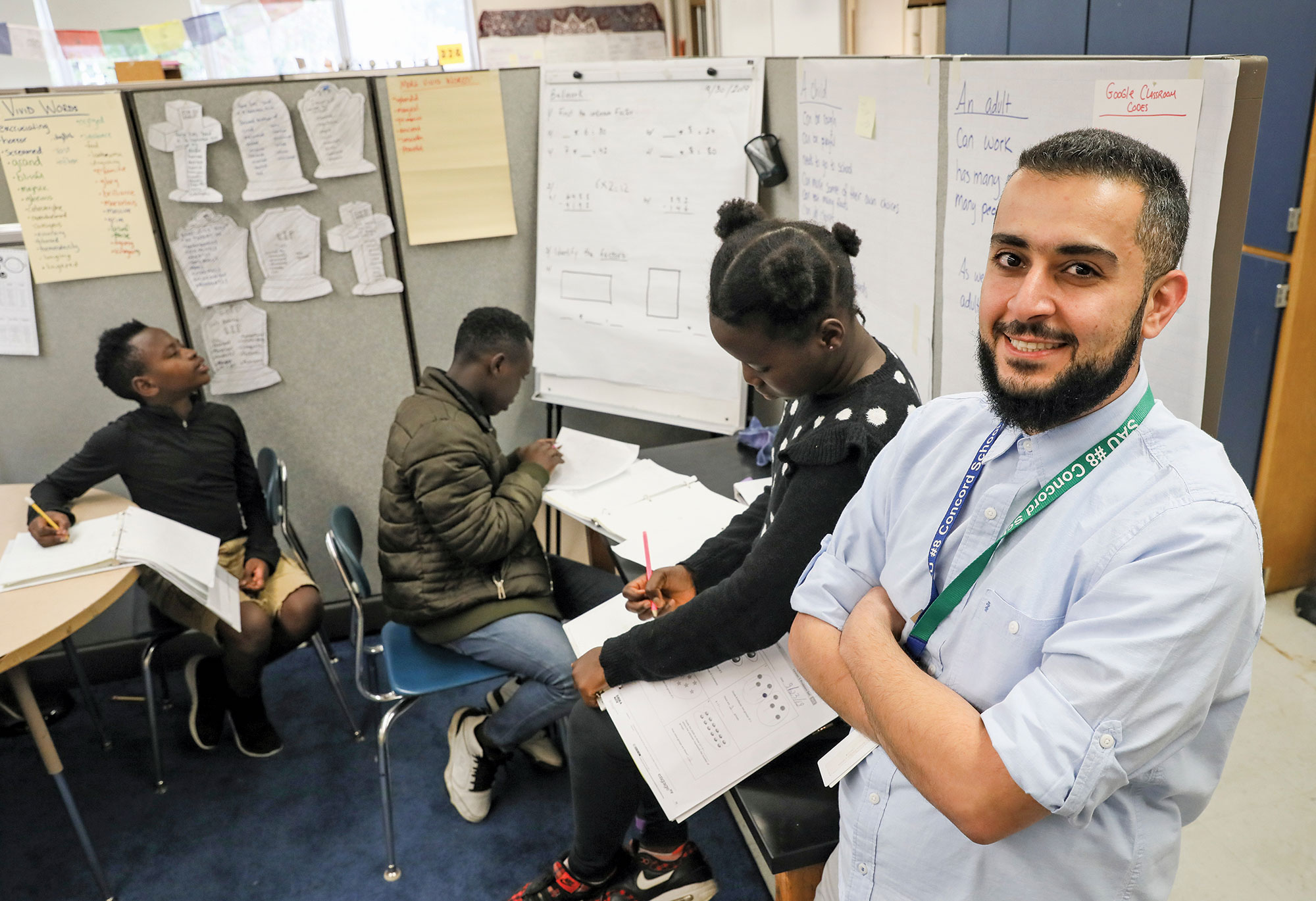
Yahya Nasser Eddine of Manchester (pictured above) is fluent in four languages and has a master’s degree in Marketing Management from a university in Europe. Growing up in Tripoli, in northern Lebanon, he had dreamed of being a teacher. When he married a New Hampshire native and settled in Manchester, he had trouble finding work that matched his education. In New Hampshire, he re-embraced his dream of teaching and decided to re-train through the New Hampshire Technical Institute’s Teacher Educator Conversion Program to teach English to students who speak other languages.
He remembers being that student — enrolled in college, in Switzerland — who was alone in a foreign country and struggling mightily with a language barrier.
“They will not be able to seize opportunities if they cannot speak the language,” he says of his students. He had been tutoring and driving for Uber while he was in school, but his student-teaching semester required a full-time commitment, which meant he had to give up his sources of income. A Medallion Fund scholarship helped bridge the gap.
“Teaching has always been my dream,” he said. He will graduate in December and hopes to have his first classroom posting soon after.
About 1,500 students get scholarships from the Foundation every year.
“A more highly educated and trained citizenry creates stronger communities and a stronger economy and creates more opportunity for everyone. And when you add that up,” Gittell said, “we have a stronger state.”
Every scholarship fund has a story
Every one of the 421 scholarship funds at the Charitable Foundation has a story. One woman started a scholarship to honor her mother, who worked in textile mills and gave her daughter her last $100 so she could graduate college and become a teacher. Scholarships honor children lost too soon, by helping other children get the education they need. There is a scholarship named in honor of a New Hampshire man who was a video game pioneer; scholarships established by businesses, for children of employees. There is even one named in honor of George Herman “Babe” Ruth. Some are specific to professions, like nursing, some for students from specific high schools.
Thousands of students apply for Foundation scholarships each year. Applications are reviewed by staff with help from volunteer committees, who match the students with the greatest need with available funds.
“This program has made a difference in tens of thousands of lives,” said Laura Rauscher, Foundation director of philanthropy. “When you create a scholarship fund, you are directly increasing someone’s opportunity to achieve the American Dream. I love seeing how gratified people feel when they realize what a difference they can make with a scholarship fund.”
For Ferland, becoming an R.N. means achieving the career of her dreams — and puts her a step closer to her American Dream. The median wage in the U.S. for medical assistants, the job she is currently doing, is $33,610. For R.N.s, the median jumps to $71,730.
“I just applied for a mortgage,” she says proudly. “2020 is definitely going to be my year.”
Help students get the education they need to thrive
Scholarships help New Hampshire students who show great potential but have limited resources to pay for the education they need.
The Foundation administers more than 400 individual scholarship funds, set up by generous families and individuals.
Scholarship funds can be set up to support students from a particular community or who graduate from a specific high school, who are entering certain fields of study — or can be open to any qualified applicant. Scholarships can help cover the costs of a two- or four-year degree, or a trade certificate or credential. They can be set up to be renewable, to help students throughout their college careers.
The Foundation’s Student Aid team processes all applications, selects recipients with assistance from volunteer scholarship committees and awards scholarships to about 1,500 students every year.
Scholarship funds can be set up to continue in perpetuity — so that your gift continues to help students for generations to come. You may make additional tax-deductible gifts of any amount into your fund at any time, and you can also invite others to contribute to your fund.
Scholarship funds may be established with $25,000 — or you may make contributions of any amount to an existing scholarship fund.
To learn more about setting up a scholarship fund at the Foundation, please contact Laura Rauscher, director of philanthropy, at 800-464-6641 ext. 274 or Ynhen.Enhfpure@aups.bet.

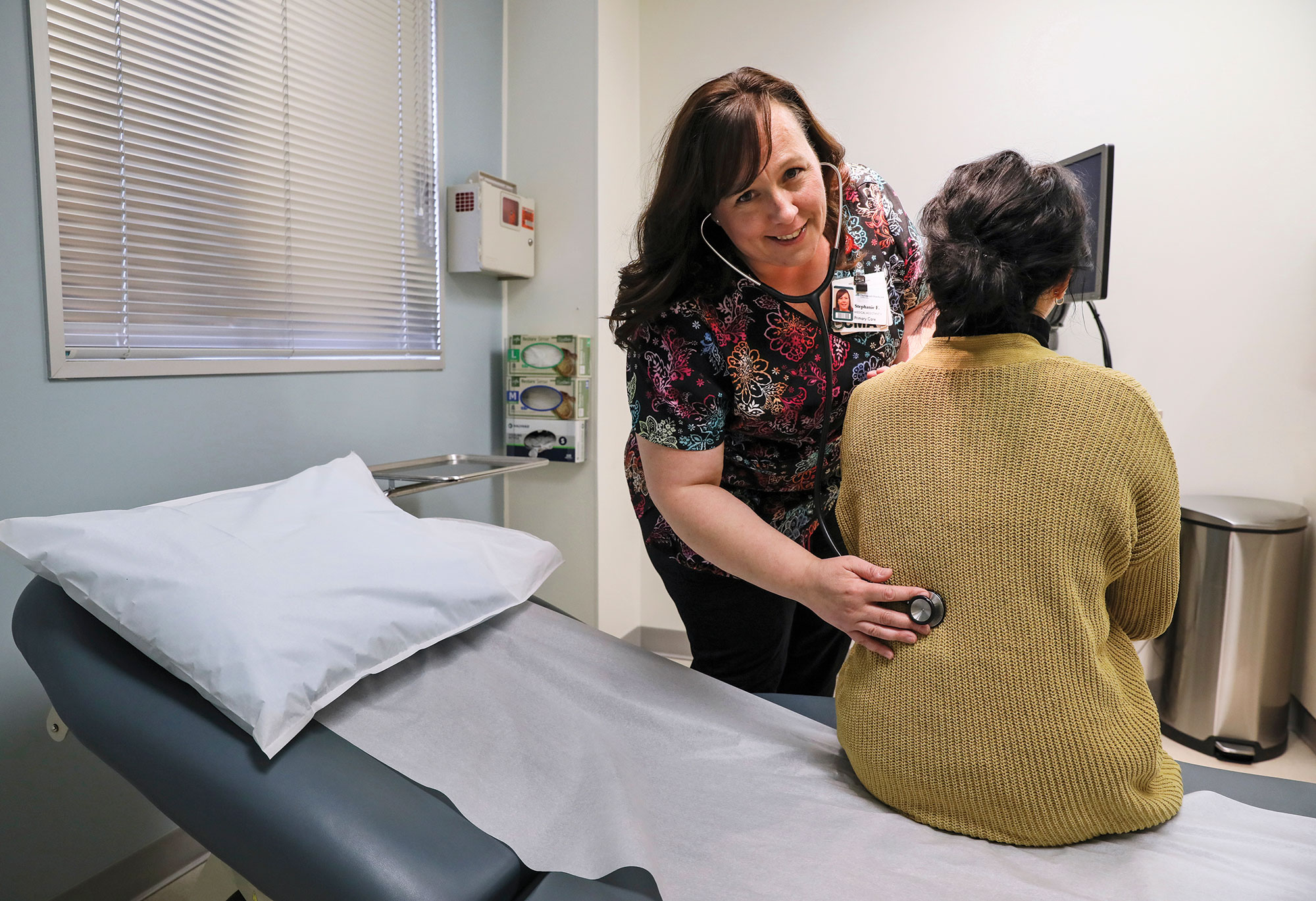






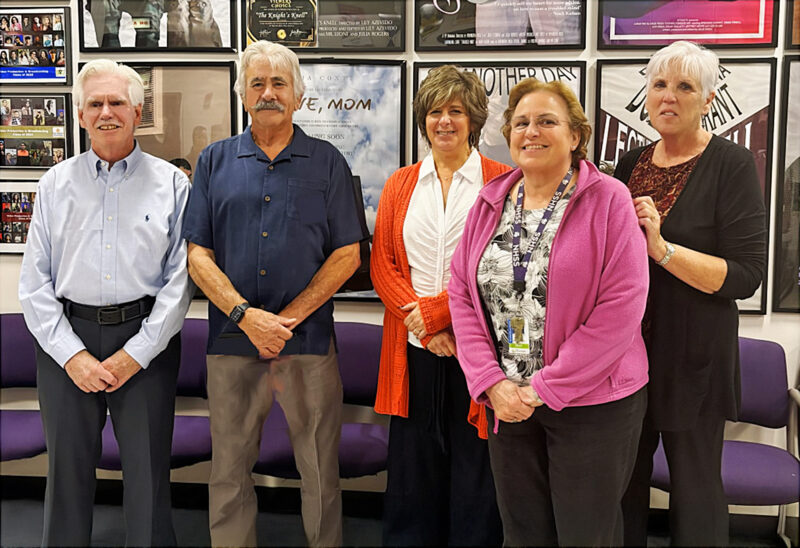
![Oluwakemi Olokunboyo of Dover received a McNabb scholarship to study nursing at Great Bay Community College [Photo by Cheryl Senter]](https://www.nhcf.org/wp-content/uploads/2024/05/Scholarship-Hero-800x548.jpg)
